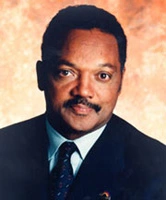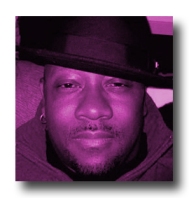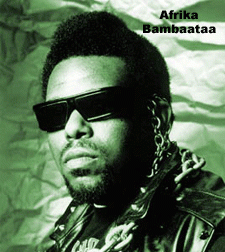
Tyler Perry
Movie mogul Tyler Perry is on fire. His new movie Temptation was bigger-than-projected. It opened at $22.3 million making it Perry’s second-biggest opening non-Madea movie after the sequel Why Did I Get Married Too?. Tyler said he’s happy with his latest efforts and feels it was big comeback after the set backs and harsh criticism he received with the thriller Alex Cross and his own Good Deeds.
As for future projects Perry announced that he’s teamed up with the History Channel which is coming off a huge ratings success with their mini-series The Bible. The network announced it was their most watched series to date and they are excited to team up with Perry to do several miniseries that highlight and chronicle African-American life. History Channel executives were impressed how Perry gave new life to the iconic play For Colored Girls Only....and feel he can bring similar success to the network.

DJ Kool Herc
The first scheduled project will be an epic miniseries on the birth of Hip Hop which celebrates its 40th anniversary this year. History notes on August 11th 1973 in the South Bronx at a community center located inside 1520 Sedgwick Avenue, Clive Campbell better known as DJ Kool Herc along with his sister Cindy threw a back to school dance to raise money for school clothes. The pair who had newly arrived from Jamaica and brought with them a new style of deejaying which included using a massive sound system and doing early raps then called chants over instrumental dub plates. This is how Hip Hop was born.
Perry acknowledged that he grew up on Hip Hop and always wanted to see this story come to life and be told correctly. “A lot of people don’t know, that I’m what you would call a true Hip Hop head. I love rap. I love Hip Hop and I want to do this right…. Doing this series on the History Channel in the same vein as the Bible series will give Hip Hop the true academic validation that has alluded it all these past 4 decades.”

Bible Miniseries producers Roma & Mark
Roma Downey and Mark Burnett the brains and key architects behind the Bible miniseries have been tapped to produce the Hip Hop miniseries which is tentatively titled ‘40 Years The True Story of Hip Hop‘. Although they are not Hip Hop ‘experts’, they are Biblical experts and in Hip Hop in many respects parallels the trajectory of events in the Bible. History Channel executives felt it was important to tap into their talents so that they can give the True Story of Hip Hop an exciting and larger-than-life cinematic epic feel.
Perry stated ‘These guys are great writers and have tremendous passion and vision..What we have done is amassed a panel of Hip Hop experts including Chicago State scholars Frank Chitterbang and Sam Socrates who founded the nation’s first Hip Hop studies program last year.
“We need to celebrate and honor them for being the first to bring Hip Hop to academia” Perry said. Hip Hop needs to be studied. This miniseries will help underscore that point.
Other Hip Hop experts to be tapped for the Perry/ History Channel Hip Hop project include; Civil Rights icon Jesse Jackson and Reverend T.D. Jakes.
Why Church folks? some may ask…

Jesse Jackson
“In telling the story of Hip Hop we have to be honest and go to the true source”, Perry noted. “Hip Hop didn’t start in some dirty run down ghetto. It started in the church. The first rappers were preachers.
The young bucks at the first party DJ Kool Herc gave were emulating their elders from the church by doing what we call in the African tradition ‘Call and Response’. Dr Martin Luther King who Reverend Jackson marched with was the first true emcee..His cadence, his swag, his message is what inspired early Hip Hop.. That’s real talk. We gotta own up to this.. We gotta know our true history”.
It should also be noted that Jesse Jackson was the first Civil Rights Icon Hip Hop paid tribute to, when Grandmaster Flash did a song about him called Jesse to commemorate his historic 1984 run for President.
http://www.youtube.com/watch?v=V3IsCfMB0rk
Perry noted that to keep everyone honest and this series truly authentic, they are inviting the owners of the Hip Hop’s biggest websites like World Star, Bossip, and AHH to name a few to offer advice and help guide the miniseries.
In terms of casting, Perry noted that he and the History Channel were meticulous in their eventual selection. Former wrestler turned actor Dwayne Johnson better known as The Rock’ will play DJ Kool Herc. Both men have similar physics.

Don Cheadle to play GM Flash
Comedian Anthony Anderson will play Big Bank Hank of the Sugar Hill Gang
Cedric the Entertainer will play Hip Hop pioneer Afrika Bambaataa.
House of Lies actor Don Cheadle will play pioneer Grandmaster Flash.
Chris Brown is being cast to play a young brash LL Cool J.
Coming off rave reviews and the success of Temptation, reality TV star who is now making major headway into Hollywood as an actress of note, Kim Kardashian will be tapped to play Salt of Salt-N-Pepa one of Hip Hop’s first female emcees.
Perry noted that her boyfriend Kanye West is being asked to help show her some pointers on how to rap.. ‘She will do this important role and the miniseries justice’ Perry added.

Kim Kardashian
Pepa will be played by Janet Jackson who is a favorite in Perry movies
History Channel executives are being tight-lipped about other roles, but from the looks of things this promises to be an all-star cast.
Perry noted that its important to keep in mind Hip Hop is inclusive. Its a bout building community. It’s in that spirit they are opening their doors doing a nationwide casting call for those involved in Hip Hop and can do a little of acting. They are also looking for Hip Hop experts who are knowledgeable about local Hip Hop history from their respective cities..If you would like to be part of the Hip Hop miniseries you can get more information by clicking HERE..
In case you don’t know…

 This is part 2 of an article we penned called
This is part 2 of an article we penned called 

 Gil Scott-Heron is often called the Godfather to Rap. It was a title he shunned, stating he preferred to be known as a bluesologist. Nevertheless, Heron was a towering figure whose signature song Revolution Will Not be Televised was redone by too many Hip Hop artists to name. Cuts like
Gil Scott-Heron is often called the Godfather to Rap. It was a title he shunned, stating he preferred to be known as a bluesologist. Nevertheless, Heron was a towering figure whose signature song Revolution Will Not be Televised was redone by too many Hip Hop artists to name. Cuts like  The Watts Prophets have not only been heralded as important figures in the emergence of West Coast rap, but in 1970 they released an album called ‘Rappin’ Black in a White World’. Many consider that to be the first to use the word ‘Rap’ to describe a recording that featured rhyming, This groundbreaking album proceeds ‘Rapper’s Delight‘ by almost 10 years. They also featured a woman vocalist named Dee Dee McNeil who isn’t often named when speaking of the Watts prophets
The Watts Prophets have not only been heralded as important figures in the emergence of West Coast rap, but in 1970 they released an album called ‘Rappin’ Black in a White World’. Many consider that to be the first to use the word ‘Rap’ to describe a recording that featured rhyming, This groundbreaking album proceeds ‘Rapper’s Delight‘ by almost 10 years. They also featured a woman vocalist named Dee Dee McNeil who isn’t often named when speaking of the Watts prophets

 We caught up w/
We caught up w/ 

















 If you happen to be in New York, you may see a flyer being circulated around that is reminiscent of the old school flyers from back in the days. ‘By Popular demand DJ Cool Clyde, Lightnin Lance, The Nasty Cuzins, Quiet Az Kept Present their first annual Old School Reunion & Picnic’. It lets you know that the celebration for Disco King Mario is taking place Saturday August 18th at Rosedale ‘Big Park’ in the Bronx. The Big Park itself is legendary. When I was a kid living on Croes Avenue, we were absolutely forbidden to go across the street to the Big Park. That was because the Big Park was where many of many of the early Black Spades used to hang out. The Spades at that time were the largest and most notorious gang at that time. They eventually evolved to become The Mighty Zulu Nation. As for the Big Park, it eventually became the place where Disco King Mario would eventually throw many of his early gigs.
If you happen to be in New York, you may see a flyer being circulated around that is reminiscent of the old school flyers from back in the days. ‘By Popular demand DJ Cool Clyde, Lightnin Lance, The Nasty Cuzins, Quiet Az Kept Present their first annual Old School Reunion & Picnic’. It lets you know that the celebration for Disco King Mario is taking place Saturday August 18th at Rosedale ‘Big Park’ in the Bronx. The Big Park itself is legendary. When I was a kid living on Croes Avenue, we were absolutely forbidden to go across the street to the Big Park. That was because the Big Park was where many of many of the early Black Spades used to hang out. The Spades at that time were the largest and most notorious gang at that time. They eventually evolved to become The Mighty Zulu Nation. As for the Big Park, it eventually became the place where Disco King Mario would eventually throw many of his early gigs.